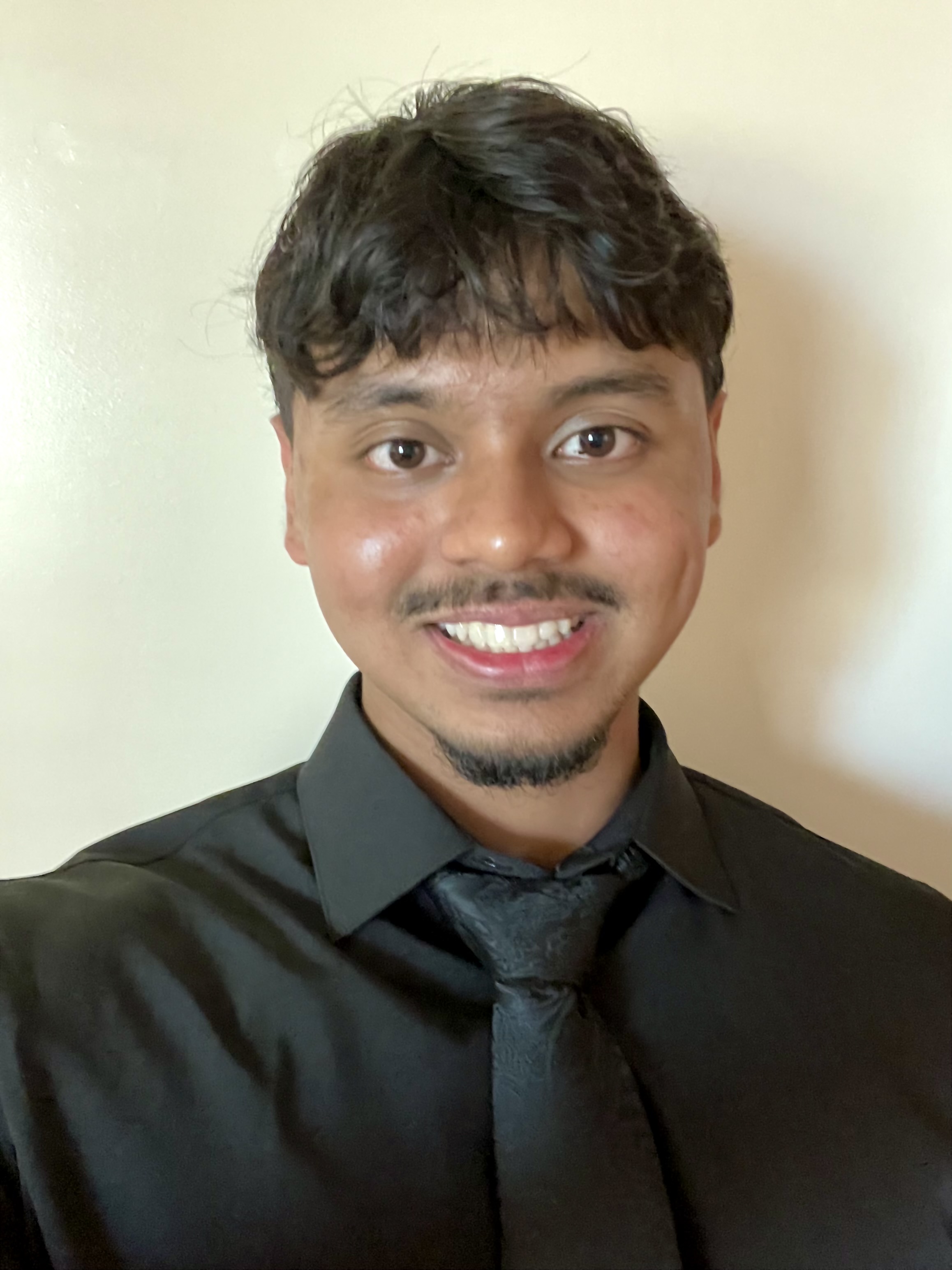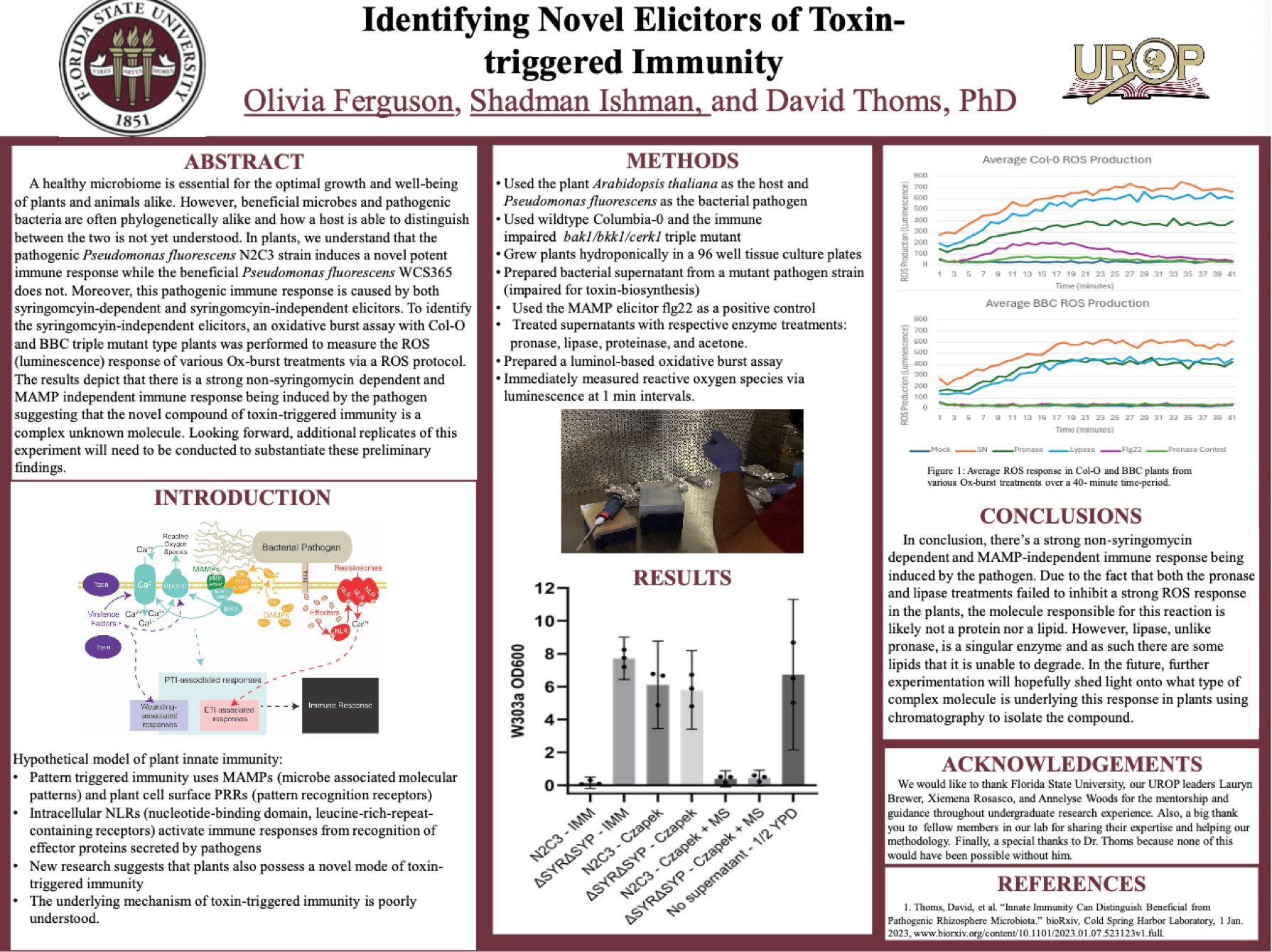Research Symposium
24th annual Undergraduate Research Symposium, April 3, 2024
Shadman Ishmam Poster Session 1: 9:30 am - 10:30 am /229

BIO
Hello, my name is Shadman Ishmam and I come from south Florida. I enjoy doing things such as working out, playing soccer, and watching shows in my free time. My interest in research comes from my desire to contribute to our ever-growing body of scientific knowledge. Although I wasn't very knowledgable at first, since joining this lab, I've learned a great deal about the microbiome and immune system of plants. Gaining such knowledge and being able to do such fascinating experiments has only further incentivized me to continue doing research in the future.
Identifying Novel Elicitors of Toxin-triggered Immunity
Authors: Shadman Ishmam, David ThomsStudent Major: Behavioral Neuroscience
Mentor: David Thoms
Mentor's Department: Biological Science Mentor's College: Arts and Sciences Co-Presenters: Olivia Ferguson
Abstract
A healthy microbiome is essential for the optimal growth and well-being of plants and animals alike. However, beneficial microbes and pathogenic bacteria are often phylogenetically alike and how a host is able to distinguish between the two is not yet understood. In plants, we understand that the pathogenic Pseudomonas fluorescens N2C3 strain induces a novel potent immune response while the beneficial Pseudomonas fluorescens WCS365 does not. Moreover, this pathogenic immune response is caused by both syringomcyin-dependent and syringomcyin-independent elicitors. To identify the syringomcyin-independent elicitors, an oxidative burst assay with Col-O and BBC triple mutant type plants was performed to measure the ROS (luminescence) response of various Ox-burst treatments via a ROS protocol. The results depict that there is a strong non-syringomycin dependent and MAMP independent immune response being induced by the pathogen suggesting that the novel compound of toxin-triggered immunity is a complex unknown molecule. Looking forward, additional replicates of this experiment will need to be conducted to substantiate these preliminary findings.
Keywords: plant, immunity, microbiology, toxin, microbiome


